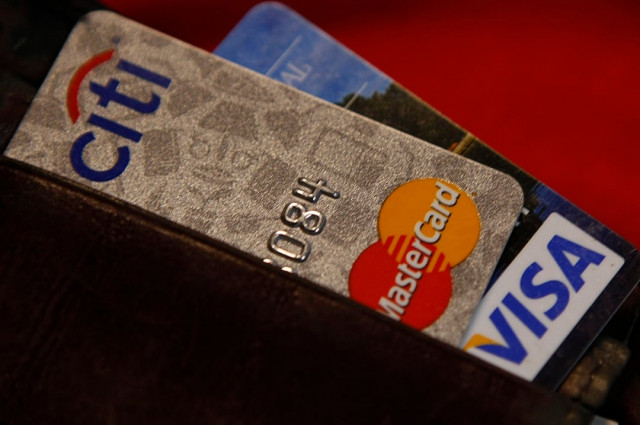Using mobile wallets to fix economy
How can Pakistan ensure growth in digital finance and use of mobile wallets?

PHOTO: REUTERS
While I was roaming around, I noticed that every store, no matter how small, was accepting almost all payments through mobile phones. People were scanning the QR codes through their phones, using the mobile wallets by popular Chinese apps such as WeChat and AliPay and payments were being made seamlessly. In fact, throughout my stay, I didn’t see any cash exchanging hands and rarely a credit card being used. It is amazing how digital finance underpins the huge Chinese economy.
In recent years, mobile wallets have been gaining popularity in Pakistan as well, and reportedly there are more than 38 million mobile wallet accounts. Unfortunately however, more than 50% of these accounts are inactive and the transaction volume is significantly low.
Pakistan is facing the threat of being blacklisted by the FATF, on account of money laundering and terror financing threats. Much of money laundering involves cash-based businesses, where black money is layered with white money and then placed into various channels. These cash-based enterprises provide the breeding grounds for avoiding the tax net. Perhaps the biggest challenge now facing the Pakistani economy is lack of documentation. If Pakistan can somehow adopt digital finance and become a cashless economy, it can very well address this issue. Technology is the way to fix Pakistan’s ailing economy.
But it is easier said than done. While non-cash transactions in emerging markets are growing at more than 20%, a report by McKinsey Global Institute shows that the share of digital payments in Pakistan still stands at less than 1% of the total transaction volume, despite 45% of the population owing a mobile phone.
In comparison, the drastic demonetisation efforts in India, in the recent past, have led to a staggering 33% growth in non-cash transactions and 75% increase in payments made via mobile wallets. Additionally, the financial inclusion scheme Jan Dhan Yojna led to fast adoption of mobile wallets and digital finance. Many global tech giants, such as Google and Facebook, are now vying for a share of this massive digital finance market.
How can Pakistan ensure growth in digital finance and use of mobile wallets?
While working on digital divide is the key in the long run, there are a number of areas of immediate policy concern. For instance, mobile transactions should be incentivised and not subjected to withholding taxes. The SBP needs to invest in an inter-operable payment system and a micro-payment gateway to allow free flow of small transactions. Reportedly, Karandaaz, through support from Bill and Melinda Gates Foundation, is already working on the latter.
The government should promote innovation in the fintech space by adopting a regulatory sandbox approach, where companies can experiment with crypto currencies, mobile payment solutions and other innovative technologies without any immediate regulatory burden.
But besides these policy measures, what the government really needs is to adopt digital payments for all government-to-people (G2P) and people-to-government (P2G) payments. This essentially means that any money exchanging hands between the government and the people should become cashless.
The potential of digital finance is huge. Experts suggest that every 1% increase in bank deposits can lead to 0.2-0.3% growth in GDP. Moreover, by 2025, digital finance alone can create four million new jobs and reduce seven billion dollars in government leakages in Pakistan. But this is only possible if we take the right steps and strengthen the digital finance ecosystem.
Published in The Express Tribune, April 30th, 2019.
Like Opinion & Editorial on Facebook, follow @ETOpEd on Twitter to receive all updates on all our daily pieces.














COMMENTS
Comments are moderated and generally will be posted if they are on-topic and not abusive.
For more information, please see our Comments FAQ